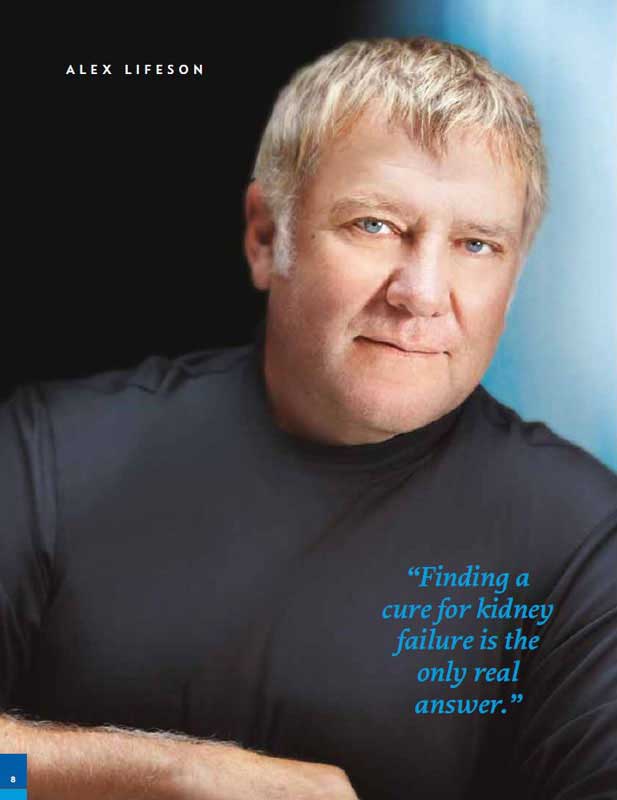Where Hope Resides
Kidney Foundation Of Canada 50th Anniversary, May 2014, transcribed by pwrwindows

By his own admission, Alex Lifeson is a pretty resilient, easy-going guy. The world-renowned guitarist who co-founded the iconic rock band Rush at age 15 believes these are traits he inherited from his father Nenad. His father's strong work ethic and irrepressible spirit carried him successfully throughout his life, including a courageous journey to Canada from Yugoslavia in 1947 and a number of health challenges, culminating in a final battle with kidney failure from 2000 to 2003.
"My father was someone who was able to adapt to constant change all his life," Alex says, "and if he ever did complain, he always made a joke out of it. I remember being with my dad at the hospital when the doctor told him there was nothing more they could do for him and that he should live the last years of his life the best he could on dialysis. I remember like it was yesterday, my dad sitting up in bed, saying, "but I feel like I am 24'."
Alex recalls that, despite the initial shock, his father handled the transition to in-centre hemodialysis three times a week with his usual positive attitude and great sense of humour. But it was clear dialysis was hard on him. And life for the family, especially his mom and dad, became much more restrictive. The complex arrangements involved with traveling while on dialysis meant his parents now had to pass on the family trips to Florida they had all enjoyed so much.
Because of the underlying health conditions -heart disease and blocked arteries - which led to his kidney failure, Alex's father was not a candidate for a transplant.
Now, as one of The Kidney Foundation's national spokespeople in a new campaign to raise public awareness of kidney disease, Alex is doing everything he can to help get the message out to Canadians that the best possible way to fight kidney failure is to stop it from happening in the first place - by understanding and managing the risk factors and underlying health conditions, like diabetes and high blood pressure, that often lead to it.
"Once your kidney function is gone, it's gone. It's never coming back and you can't turn back the clock. Very often you can successfully tackle the conditions that lead to kidney failure with lifestyle changes or medication."
Now 60 years young and still touring the world to sellout crowds, Alex practices what he preaches and pays close attention to his health. He's well aware that in addition to his dad's strength of character, he's also inherited a predisposition to the same health conditions, including kidney stones, which increase the risk of developing chronic kidney disease.
Though a proactive approach to kidney health is crucial, not all kidney disease is preventable, and Alex is unequivocal in his belief that, "finding a cure for kidney failure is the only real answer".
For Alex, "getting to the cure means raising enough money to be able to keep searching for better and more effective treatments." He has helped advance The Kidney Foundation's research efforts by participating annually in the Foundation's "Brush of Hope" art sale since 2006. Proceeds from the sales of his original paintings and signed limited edition prints have raised over $140,000 to support kidney research in the last three years alone.
"So much is yet undiscovered and science is moving so rapidly. Think of the potential of stem cell therapy alone. It is the continued quest for new and better diagnostic methods and treatments that will ultimately lead to a cure - that's where hope resides.